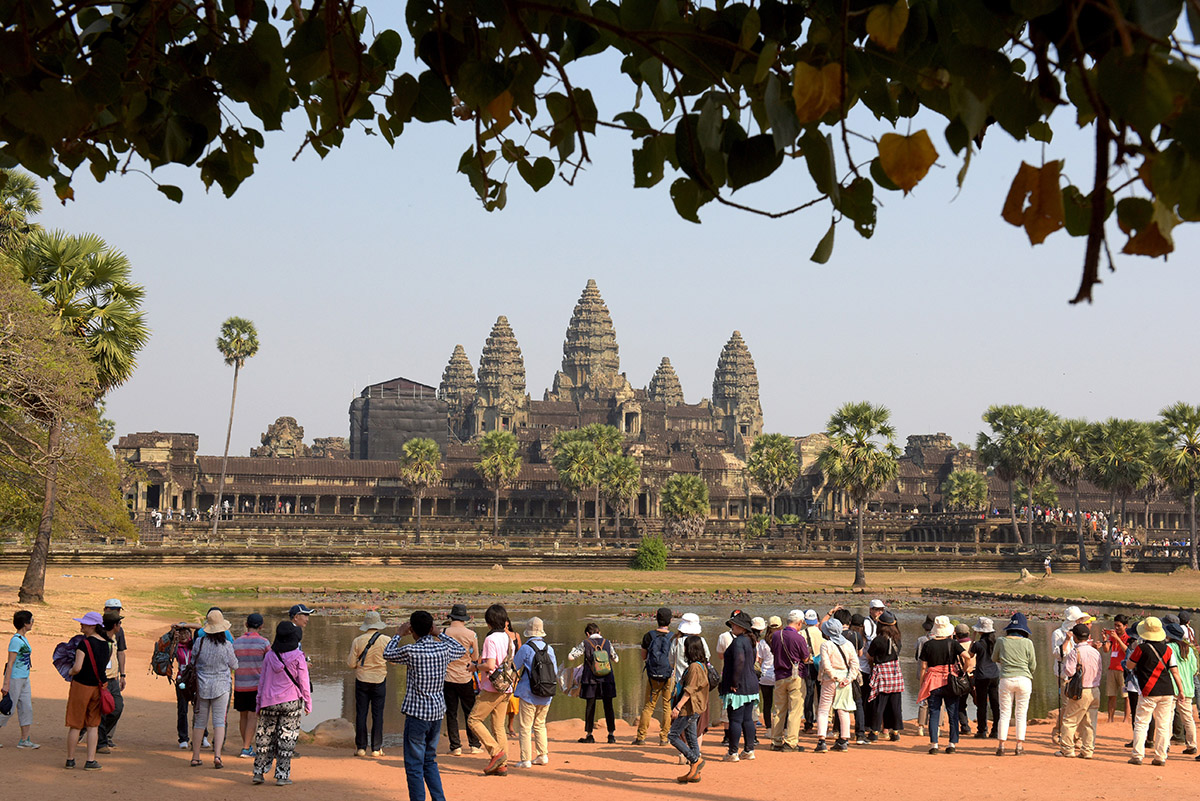Cambodian Prime Minister Hun Sen’s recent crackdown on dissent is expected to affect business sentiments in the country, which relies largely on international tourism. While such a move could send a negative signal to investors, it is unlikely to have any visible impact on FDI (foreign direct investment) flows into Cambodia.
Cambodia, one of the fastest growing economies in Asia has achieved an average growth rate of 7.6 percent between 1994 and 2015, ranking sixth in the world. In 2016, the number of foreign tourists visiting Cambodia increased five percent to five million compared to 4.8 million in 2015. According to the World Travel and Tourism Council, the total contribution from the tourism sector to Cambodia’s GDP (gross domestic product) was 5.5 billion dollars or 28.3 percent in 2016. It is projected to rise by 9.9 percent in 2017.
Laura Southgate, lecturer in International Security at Cranfield University in the United Kingdom said political unrest may negatively impact tourism, which is a core source of income of the state. She said Cambodia has seen high economic growth in the past 20 years, largely due to goods exports and tourism. “If Cambodia wants to maintain or increase this growth, foreign direct investment will be vital. This could be seriously affected by the recent reports of corruption and rights abuses, which create uncertainty in the economic environment,” Southgate told The ASEAN Post via an email reply.

Tourist arrivals to Cambodia from 2010-2016
Having said that, Southgate noted it is important to remember that one of Cambodia’s largest foreign investors is China. “Because China does not place conditions on its investments like those placed by Western countries, such as improved governance, democracy and human rights, Cambodia’s current political troubles might not lead to the sort of economic backlash that one might expect. Undoubtedly, Cambodia wants to appeal to investors worldwide. But if it has China’s continued backing and there is little to suggest otherwise, business investments might not be unduly affected.”
In a recent report, the World Bank has projected Cambodia’s GDP to reach 6.9 percent in 2017 and 2018. The country’s economic outlook remains strong, driven mainly by its resilient construction and garment sectors. Following more than two decades of strong economic growth, Cambodia has attained lower middle-income status as of 2015, with its GNI (gross national income) per capita reaching 1,070 dollars. According to preliminary estimates, economic growth slightly eased to 6.9 percent in 2016, compared to 7 percent in 2015. However, it is expected to remain strong over the next two years as recovering tourism activities coupled with fiscal expansions compensate for signs of moderation in garment exports and construction growth.
Kem Sokha, leader of the opposition CNRP (Cambodia National Rescue Party), was arrested and charged with treason. He could face up to 30 years in prison if convicted. The arrest has caused chaos and drew criticism from various international organisations such as the ASEAN Parliamentarians for Human Rights (APHR) and United Nations Human Rights Council.
Human Rights Watch in its latest 2017 World Report stated that Hun Sen and his ruling CPP (Cambodian People’s Party) during 2016 significantly escalated persecution on political grounds, targeting Cambodia’s political opposition, human rights workers, social activists and public intellectuals on the basis of their real or perceived political opposition to the government and its leader. These crackdowns appear to be aimed at weakening the CNRP ahead of elections scheduled in 2017 and 2018.
